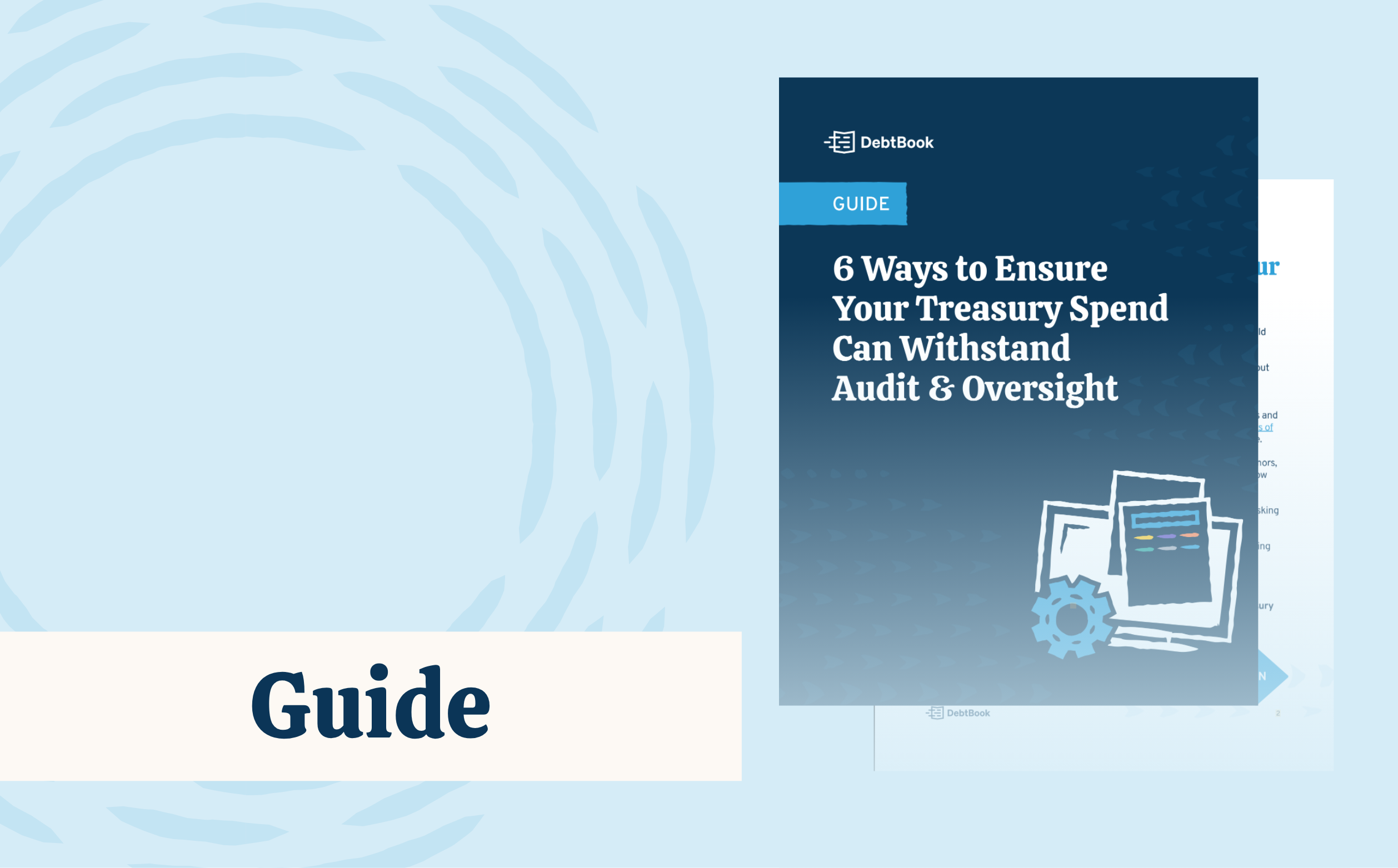Continuing disclosure is not always the most exciting task, but it’s a critical part of any local government’s efforts to manage its debt effectively and efficiently.
Continuing disclosure provides municipal bond investors with information about the financial health or operating condition of the state or local government as it changes over time, and the U.S. Securities and Exchange Commission (SEC) requires it for publicly offered securities under rule 15c2-12.
DebtBook recently hosted a panel discussion for the North Carolina Local Government Budget Association (NCLGBA) featuring several experts in the area of debt management. One of our panelists was Jon Mize, a partner with Womble Bond Dickinson, who gave his top 10 rules to follow when it comes to continuing disclosure — or, as he calls them, the 10 commandments. You can watch the video for a more complete breakdown, or continue reading for a brief synopsis.
The Ten Commandments of Continuing Disclosure
Thou shalt know thy debt: It’s important to keep track of all issues and Committee on Uniform Security Identification Procedures (CUSIPs). A minor CUSIP mistake, such as switching an issuer code with an issue code or simply making a typo in the digits, can create a major headache down the road.
Thou shalt cross-check annual operating data to the original undertaking: Each year, you may be required to post certain supplemental data to Electronic Municipal Market Access (EMMA) that is not covered by your Annual Comprehensive Financial Report (ACFR), which means you need to file those items separately and link them to the appropriate CUSIPs. Failing to post annual data not included in your ACFR is the most common disclosure mistake, so be sure to refer back to your original bond documents and cross-check to make sure you haven’t dropped any sections or confused requirements for different types of securities.
Thou shalt use thy annual filing template, but be wary: Templates are a good thing to have, but only if they’re correct. Templates save time and provide consistency of presentation, but if you make a mistake in your template, you’ll make the same mistakes in every disclosure filing based on that template. Be sure your templates cover all of the required disclosure items referenced in your original bond documents to avoid repeated mistakes.
Thou shalt know thy annual filing deadlines: Filing deadlines are hard and fast; even being a day or two behind can result in a material weakness. Little delays along the way can create big headaches when they inevitably pop up during a review of your past continuing disclosure efforts. Using tickler systems allows time-sensitive documents to be filed according to the future due date and allows borrowers to stay well ahead of deadlines and avoid last second mistakes.
Thou shalt introduce your colleagues to the joys of continuing disclosure: Provide adequate training for your staff on continuing disclosure to avoid mistakes. It’s good to have a point person, but don’t build a silo. Consider having a formal policy on continuing disclosure that involves the entire team so that everyone is on the same page and you build redundancy and reliability into your process.
Thou shalt know that you are speaking to investors (and the SEC): Continuing disclosure is governed by the same securities laws and anti-fraud implications as a primary offering. Provide time for your bond counsel, financial advisor, or other outside expert to conduct a thorough review of information before posting. Remember, you are speaking to the marketplace.
Thou shalt see and recognize the 16 material events: Yes, there are now 16 of them, and they should be printed out to keep them top of mind. Don’t forget you have 10 business days to file after the occurrence of a material event.
Thou shalt keep receipts: The EMMA System is not perfect. Be sure to keep good records of what you have filed, who filed it, and when it was filed. EMMA can be finicky, so a good rule of thumb is to check your EMMA page throughout the year. Your filing history may not be checked often, but when it is, it is checked thoroughly.
Thou shalt use your professionals: Trust your team. Don’t be afraid to ask your attorneys and financial advisors about materiality thresholds, how to navigate the EMMA system, or for their help with any other filing-related question you might have.
Thou shalt pat yourself on the back: Continuing disclosure is hard, but important. Reward yourself (and your team!) for a job well done.
Disclaimer: DebtBook does not provide professional services or advice. DebtBook has prepared these materials for general informational and educational purposes, which means we have not tailored the information to your specific circumstances. Please consult your professional advisors before taking action based on any information in these materials. Any use of this information is solely at your own risk.







